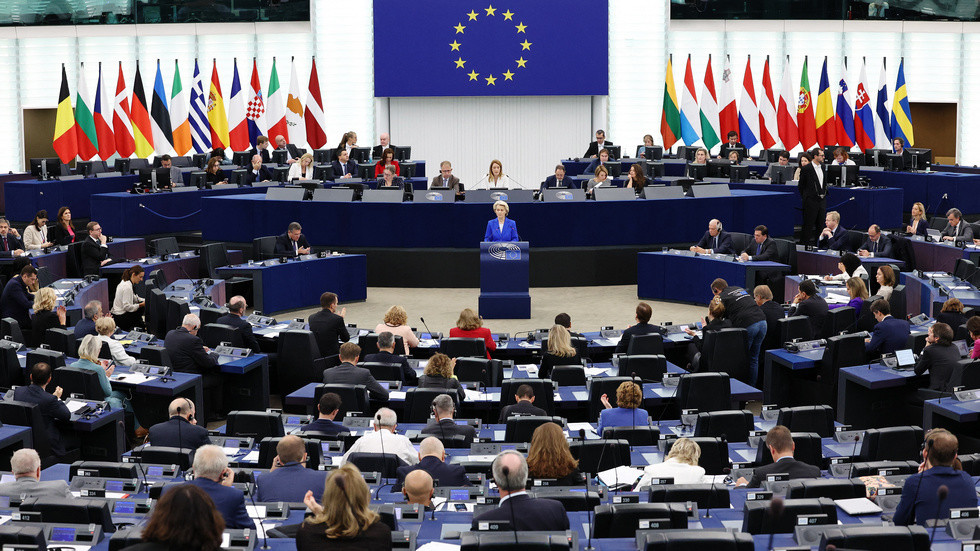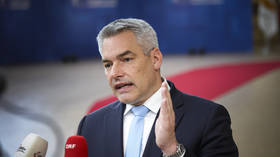
Many believe Ukraine’s accession would have negative security and economic consequences for the bloc, an ECFR poll concludes

European Commission President Ursula von der Leyen speaks at the European Parliament in Strasbourg, eastern France, on October 18, 2023. © FREDERICK FLORIN / AFP
A large share of EU citizens are skeptical about the bloc’s future enlargement, with many seeing no economic benefit to Ukraine’s potential membership, according to a poll conducted for the European Council on Foreign Relations (ECFR).
The survey, carried out by Yougov and Datapraxis in six EU countries (Austria, Denmark, France, Germany, Poland, and Romania) and released on Tuesday, found that 35% of respondents are in favor of the EU admitting new states right away, while 37% are opposed. The rest either don’t know or are indifferent.
There is a noticeable difference in how the core EU countries and relative newcomers view potential expansion. In Romania and Poland, 51% and 48%, respectively, want the bloc to expand, while only 28% of Germans and Austrians, and 27% of the French support the idea. 53% of Austrians, 50% of Germans and 44% of the French oppose adding new member states to the bloc.
When it comes to admitting Ukraine, 37% of EU citizens believe it should become a member, while 33% are against. Support for Kiev’s entry is highest in Denmark (50%) and Poland (47%). However, Germans are more divided on the issue (37% for and 39% against), as are the French (29% for and 35% against). In Austria, a majority (52%) opposes Ukraine’s accession.

Read more
Many EU citizens believe that Ukraine’s membership would have a negative effect on the bloc. 45% think Kiev’s entry would have either a small or large negative impact on EU security, with 38% voicing certain concerns about the economic consequences. 25% say Ukraine’s accession would have positive implications for EU security, and 30% think it will improve the European economy.
The new poll was released after the EU Commission recommended in early November that formal accession talks be opened with Ukraine, with Commission President Ursula von der Leyen citing Kiev’s progress in domestic reforms. The issue is expected to be discussed at the EU Summit on December 14-15.
The meeting, however, is likely to be a showdown as Hungary has consistently opposed the start of talks on the matter. Prime Minister Viktor Orban has challenged von der Leyen’s assessment of Ukraine’s progress, calling the country “one of the most corrupt” nations in the world. He has also voiced concerns that Ukraine’s membership could become a huge economic burden.




